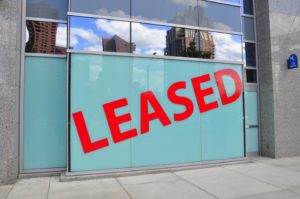 Companies that need large spaces to run their businesses often end up leasing industrial property as it is expensive to buy outright. A business may not have the necessary credit or collateral for a loan, or it may not want the commitment of purchasing, so often leasing is the natural solution. Leases are usually complicated and business owners may not have the necessary skills to negotiate the terms of their lease with the landlord, so consulting an experienced business attorney may be helpful. Call the knowledgeable Arizona attorneys at Harrison Law, PLLC at (480) 320-2310 for a consultation.
Companies that need large spaces to run their businesses often end up leasing industrial property as it is expensive to buy outright. A business may not have the necessary credit or collateral for a loan, or it may not want the commitment of purchasing, so often leasing is the natural solution. Leases are usually complicated and business owners may not have the necessary skills to negotiate the terms of their lease with the landlord, so consulting an experienced business attorney may be helpful. Call the knowledgeable Arizona attorneys at Harrison Law, PLLC at (480) 320-2310 for a consultation.
Conduct an Assessment of the Business
The first step for a company to take when leasing industrial property is to assess the business to determine exactly what is needed. Should the business rent or buy? The Accion Opportunity Fund provides information regarding buying versus renting. If it is determined that leasing is the better option, a business should ask themselves questions like:
- How much space is needed to run the business?
- What will the space be used for?
- What is the allotted budget?
- What aspects of a space are the most important and least important?
Decide What Type of Industrial Property Is Needed
There are many types of commercial properties, specifically many types of industrial commercial properties. Some of the types are as follows:
- Heavy and light manufacturing facilities
- A heavy manufacturing property houses specialized equipment and machinery to produce goods, products, and materials.
- A light manufacturing property is smaller and often simpler. It produces smaller parts, and the equipment is usually more portable.
- Distribution warehouses—These are used to distribute and ship goods. They are usually 50,000+ square feet because more space is needed to store all of the goods/products and packing materials.
- General warehouses—These are usually more for storage than they are for distribution.
- Flex spaces—These have a broad range of uses and give much more flexibility.
- Showroom buildings—These are devoted to showing products. Showrooms often have space for offices and warehouse space.
- Research and development spaces
- Data centers—These facilities often need large open spaces, as well as upgraded cooling systems to meet the demands of machines.
Search for Properties and Set Up Showings
Once a business determines what type of property is needed, it can start searching for a property to lease. There are real estate agents who can often assist in finding properties, but companies can also conduct searches on their own. Location is often important and can be a great place to begin in the search for a commercial property.
In finding an appropriate place, a business must keep in mind what aspects of the property are most important, and if a property does not have an ideal design, if that space can be modified.
Other design aspects to consider when considering a commercial property are:
- Is the building is set up favorably for deliveries and shipping if these activities are expected?
- What is the parking situation if there will be many employees needing to park daily for work?
- What is the energy efficiency of the building? Energy efficiency is an important feature of a commercial property when a business considers its carbon footprint or if the business simply wants to project the overall cost of operations at a specific location.
Once properties are found, it is usually important for a representative of the business to set up a showing to see the property in person. If this is not possible, the business must weigh the risks of leasing a property sight unseen before moving forward.
Discuss the Terms of the Lease
After a property is found and seems to be a fit for the business, the next step is to discuss the terms of a lease. This is often done first in a letter of intent, which summarizes the key terms of what a lease will look like, including the security deposit, what uses are permitted, and the length of the lease.
Other important aspects of a lease may include the type of lease, amount of rent and when it is paid, any buildout details, renewal, and the starting date. Business owners need to think of the future of their business, and not just the present, to determine the length of the lease and renewal options.
If a business has not consulted an attorney by this point, this is the stage is where an attorney might be helpful. Landlords usually have attorneys draft their lease agreements, so they can be complicated and filled with legalese. Businesses need to protect their interests. Attorneys are trained to understand lease terms, confusing language, and Arizona statutes. Title 33, Chapter 3 of the Arizona Revised Statutes directs the obligations and liabilities of landlords and tenants.
If you are ready to negotiate a lease and would like to consult an attorney, you may contact the experienced attorneys of Harrison Law, PLLC for a consultation.
Types of Leases
There are generally three types of commercial leases: full-service, net, and modified gross.
- Full-service leases include everything in the payment, meaning the landlord pays all or most of the property expenses (such as maintenance, insurance, and taxes).
- Net leases are often lower in base rent, and then the business is responsible for some or all of the property expenses. Property expenses may include parking lot maintenance, trash collection, water and sewer, and even landscaping.
- Modified gross leases are similar to full-service. Rent is paid in one sum and will include some expenses that are negotiated.
Consider Contacting an Experienced Arizona Attorney to Help Protect Your Business
Businesses want to protect their rights and negotiate the best lease terms available to them, and that is why consulting a knowledgeable attorney can be important. It may seem simple at first to negotiate your own lease, asking for the term you would like, a fair rental price, and what you are able to do to the property. However, landlords are often tough negotiators and have complicated and wordy leases for you to review. If you are a business owner who is in the process of leasing industrial property and would like to consult with an attorney to learn about your rights and responsibilities, call Harrison Law, PLLC at (480) 320-2310 to schedule.
© 2023 Matthew W. Harrison and Harrison Law, PLLC All Rights Reserved
This website and article have been prepared by Harrison Law, PLLC for informational purposes only and does not, and is not intended to, constitute legal or financial advice. The information is not provided in the course of an attorney-client relationship and is not intended to substitute for legal advice from an attorney licensed in your jurisdiction.






